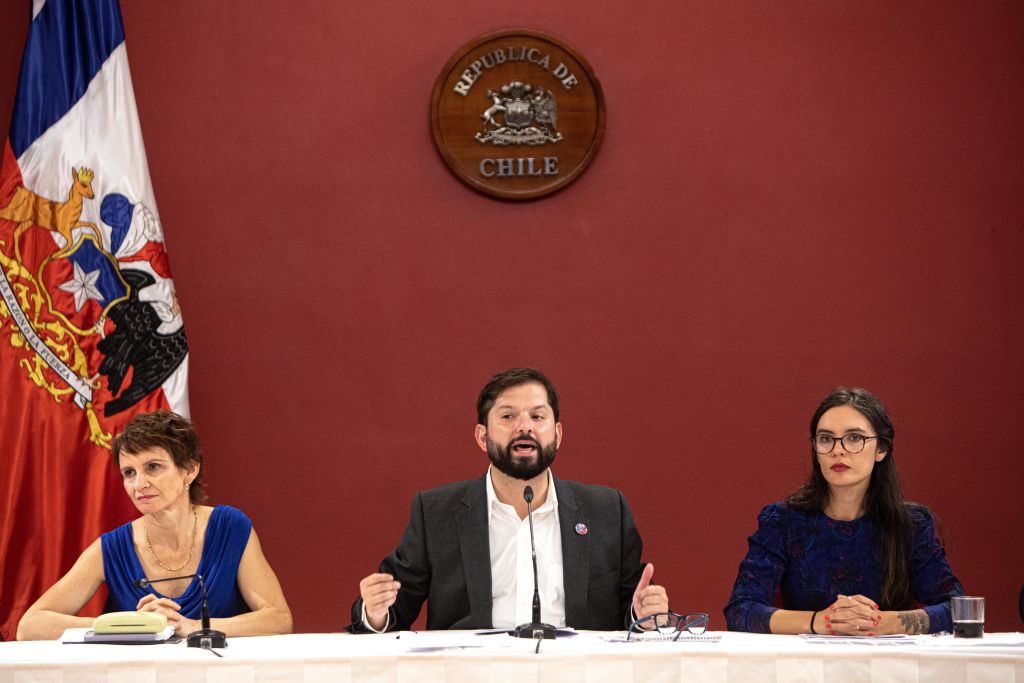On the surface, Chile and Thailand have little in common. The two countries, located in different parts of the world, have very different histories, cultures, and political systems. There is, however, one important characteristic that they share: they have both, in recent times, seen youth-based political and social movements upend the existing political order with politicians and parties that champion radical causes being victorious in national elections.
In Chile, secondary school students initially led protests that began in 2019 with widespread discontent about socio-economic conditions. Voters rejected candidates from centre-left and centre-right parties that had dominated the country’s politics for decades, instead electing Gabriel Boric, a 35-year-old leftist politician and former student leader, in 2021. Similarly, in Thailand, the victory this month of the Move Forward Party (MFP), led by Pita Limjaroenrat, over more established parties, including the Pheu Thai Party of former prime minister Thaksin Shinawatra, can be traced to youth-led anti-government protests that began following the forced dissolution of its predecessor, the Future Forward Party.
Wrangling is underway to decide what kind of government will come to power in Thailand. The MFP faces competition from Pheu Thai as well as potential pushback from the conservative military- and monarchy-aligned establishment. Pita is also facing an electoral complaint. As they manoeuvre the post-election political landscape and plan for the future, Pita and the MFP could learn from what has occurred in Chile since Boric’s youthful progressive government took office in 2022.
Boric campaigned on the issues that had motivated protesters, including frustrations over income inequality, a lack of social mobility, as well as environmental degradation and violations of the rights of women and indigenous people. He assumed office as President on an agenda that included re-writing the country’s constitution, which dates from the era of dictator Augusto Pinochet, to overhaul its economic and political system. Other bold promises included universal health insurance, eliminating student debt and shortening the work week. His cabinet includes other young former student protest leaders such as Giorgio Jackson and Camila Vallejo.
However, a draft constitution from September 2022 was rejected by voters. Many saw it as too radical. Moreover, Boric has struggled to tackle day-to-day issues that matter to voters, particularly violent crime. Rising homicides and the shooting of a police officer in April this year forced Boric’s hand on the kind of legislation that he and his fellow leftists had long opposed – a bill giving police greater latitude to use force.

Worse still for Boric and his supporters, conservatives, including those from the far-right Republican Party, this month won more than a three-fifths majority of seats in a council charged with drafting a new constitution, giving them the power to overcome vetoes and pass articles. According to Chilean research firm Cadem, half of those who voted for the Republican Party were motivated by concerns about crime, drug trafficking and immigration. Boric’s approval rating is now at 30 per cent, while his disapproval rating is at 65 per cent.
This all shows that most Chileans, despite electing Boric, were not necessarily ready to get behind his radical political agenda. Indeed, Boric had only won a plurality of votes in the first round of 2021 elections, and had to broaden his coalition to include centre-left and centrist parties to win in the second round.
Now, with a resurgent far-right, it will be harder for Boric to deliver the changes to Chile’s political and economic system that many of his supporters would have hoped for.
Like Boric, Pita and the MFP have won only a plurality of votes in Thailand and are working to hobble together a governing coalition that includes less radical parties. To his credit, Pita has recognised in a recent interview the challenges in forming a government and understands that he needs to move cautiously.
Several members of the other Thai opposition parties have voiced opposition to MFP’s plan to amend the country’s lese-majeste laws. Nevertheless, the MFP has so far agreed with seven other parties Thai on a range of bold progressive proposals including drafting a new constitution, ending monopolies, reforming the military and allowing same sex marriage if they are able to form a government.
Even if MFP and other opposition parties do form a government, their supporters may not see radical political change, at least soon. Pita, if he becomes Prime Minister, will not only face a tricky balancing act, advancing the kinds of reforms that his supporters want to see while maintaining the support of less radical political parties and voters. He will also need to govern effectively, ensuring that his government addresses people’s day-to-day problems. Otherwise, voter attitudes may change, and resurgent military-aligned parties and politicians could exploit his missteps, dashing the hopes of progressive-minded youth.
Yet if Pita and the MFP do manage these challenges effectively, they could inspire those drawn to progressive youth politics in Asia and beyond, showing that it can succeed.

